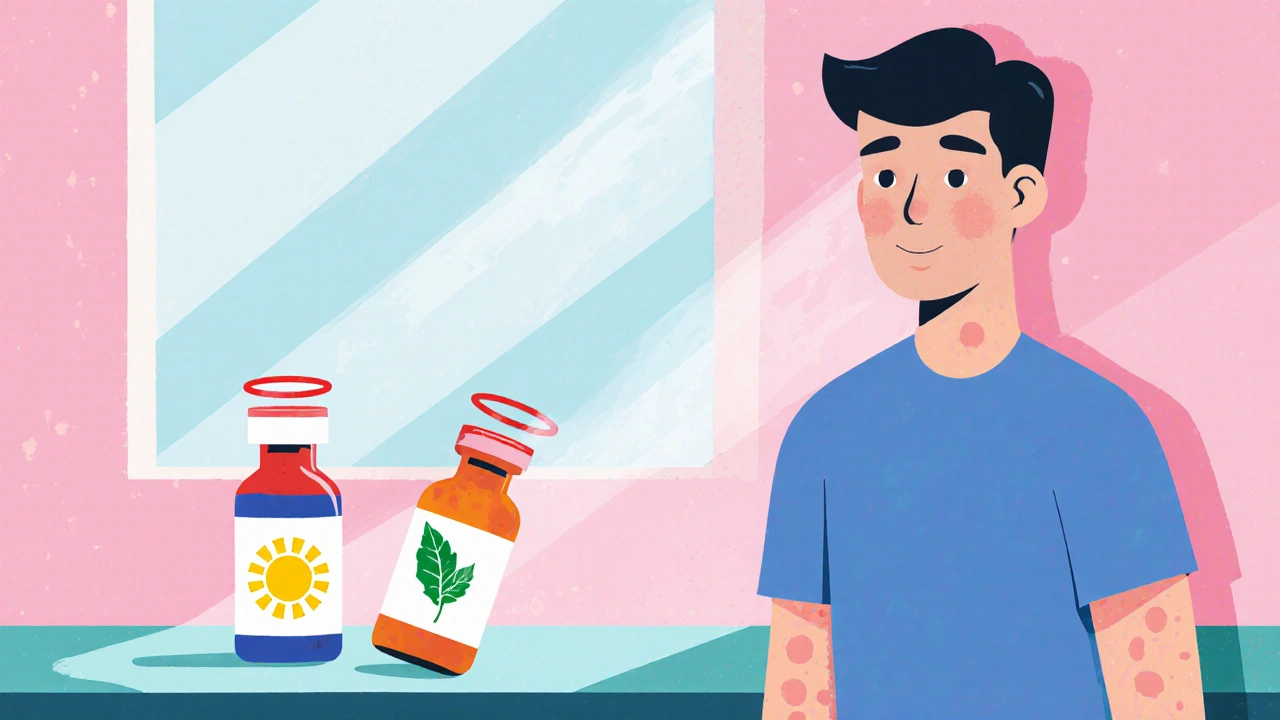Isotretinoin Guidelines: What You Need to Know About Dosing, Side Effects, and Safety
When it comes to treating severe, stubborn acne that won’t respond to other treatments, isotretinoin, a powerful oral retinoid used to clear severe nodular acne by shrinking oil glands and reducing inflammation. Also known as Accutane, it’s one of the most effective acne medications ever developed—but it’s not simple to use. These isotretinoin guidelines aren’t just suggestions; they’re based on decades of clinical data and strict regulatory requirements because the drug carries real risks.
Doctors follow specific protocols when prescribing isotretinoin. The typical starting dose is 0.5 to 1 milligram per kilogram of body weight per day, split into two doses with food to improve absorption. Treatment usually lasts 15 to 20 weeks, but some patients need a second course if acne returns. The goal isn’t just to clear the skin—it’s to achieve long-term remission. That’s why the total cumulative dose matters: most guidelines recommend reaching 120 to 150 milligrams per kilogram over the entire treatment. Going too low might mean the acne comes back. Going too high increases the chance of side effects without adding much benefit.
Side effects are common but manageable. Dry lips, nosebleeds, and dry eyes happen in nearly everyone. More serious issues—like elevated liver enzymes, increased cholesterol, or mood changes—require regular blood tests. Women of childbearing age must use two forms of birth control before, during, and for one month after treatment because isotretinoin causes severe birth defects. The FDA’s iPledge program, a mandatory risk management system designed to prevent fetal exposure to isotretinoin is required in the U.S., and similar systems exist elsewhere. You can’t get a refill without passing monthly check-ins and pregnancy tests.
Isotretinoin doesn’t just affect your skin—it affects your whole body. That’s why it’s not a first-line treatment. If you’ve tried topical creams, antibiotics, or hormonal therapies and nothing worked, isotretinoin might be your best shot. But you need to be monitored closely. The liver function tests, blood tests that check for drug-induced liver stress and lipid panels are non-negotiable. And if you notice new depression, mood swings, or thoughts of self-harm, tell your doctor immediately. Studies show a small but real link between isotretinoin and psychiatric symptoms in vulnerable people.
Many people worry about long-term effects. Will your skin stay clear? Will your joints ache later? Will your eyes stay dry forever? The good news: most side effects reverse after stopping the drug. Skin remains clearer for years in over 80% of patients. A small percentage develop chronic dryness or joint pain, but those are rare. The biggest mistake? Stopping early because of dry skin or fear. Stick with the full course under your doctor’s watch.
Below, you’ll find real-world advice from people who’ve been through it—what worked, what didn’t, and how to avoid the pitfalls. Whether you’re considering isotretinoin or just trying to understand your treatment, these posts give you the practical details no brochure ever mentions.

Tetracycline‑Isotretinoin Interaction: Pseudotumor Cerebri Risk Explained
Learn why combining tetracycline antibiotics with isotretinoin can trigger pseudotumor cerebri, how big the risk is, and practical steps to keep patients safe.
Read More